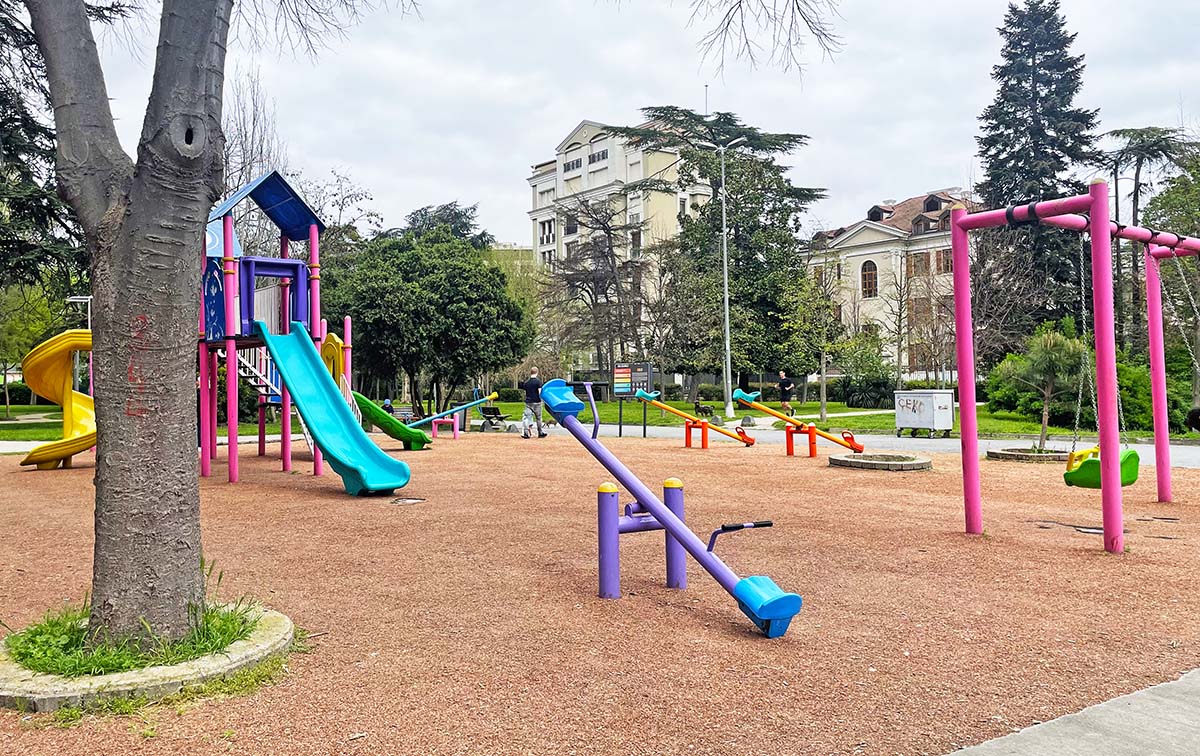There are many different approaches to language. Some language programs focus on grammar and others focus on street lingo. Those that advocate for learning grammar, or the rules of a language, are often at odds with those that suggest full immersion and learning on the fly.
When you are thinking about the best way to study language, it all depends on what you plan to do.
Maybe you have a new job in Turkey and you’re planning to make it your home for several years, or maybe you’re moving there permanently. If you want to do everything a local can (like buy or rent a house, take a university course, volunteer, play sport, manage a business, etc) then you’ll need to become fluent in Turkish and also get a handle on the culture.
Your goal of what you want to accomplish will influence what kind of language program you should undertake. If you want to become fluent, make friends and have a social life in Turkey, then your language program should mirror that; learning Turkish as you hang out with locals. That’s the goal we will focus on in this article.
How long will it take to learn Turkish?
Becoming fluent may sound overwhelming, but language experts say it’s possible with a time frame of around two years if you immerse yourself in your new community and spend lots of time with local people. It will mean getting involved in community life, which can be challenging at first for a new speaker.
Incorporate language learning into your daily routine
It’s ideal to learn Turkish full time, but that’s not always possible when you have a job or family commitments. So it’s important for language beginners to make a plan to allow as much time as possible for learning while balancing work, family and life commitments.
Being creative and flexible and including family or the workplace environment as part of the learning setting is one way to be efficient. If you have children, you could bring them along to the market and practise words for groceries as you shop, for example.
Helpful tip
Since moving to Turkey, I take my toddler almost every day to our local fruit store and we practise the names for the different fruit and vegetables together. The owner is very helpful and patient as we practise.
You could also go to the market with a Turkish friend or listen to language podcasts while doing the laundry or on the drive to work (it’s more likely you’ll be taking the metro to work, as cars are expensive in Turkey, but either way, travelling is a good chance to get out your flashcard or language app and learn new vocabulary).
Learning Turkish online through an online course can supplement a formal language course or be something you do in your spare time at home.
Language experts say there are a few things to keep in mind when learning any language.
Spend time with locals
Invest in relationships. Get to know people well and carve out time in your schedule just for meeting locals. It can be easy to be cautious in a new country but get used to saying yes when people invite you to join them in community activities.
We take our daughter to a playground in the afternoons and it’s a great chance to meet people and practise our Turkish.

Practise with a friend or language tutor
Of course, you can’t rely only on spontaneous activities to learn language. You’ll need to make time for regular, focused language practise as well, whether it be with a language tutor or a formal language program at a university, or even a Turkish online course.
We meet with our tutor three times a week to learn new vocabulary, which we then practise throughout the week.
Observe the culture
You learn culture by getting exposed to daily life. Learning culture is as important as learning language so try to spend as much time as possible where other Turkish speakers spend time, like cafes, markets and parks.
Join in real life
You will learn more and better if you are really trying to communicate something to someone, rather than sitting in a classroom doing theoretical exercises. So don’t be content on the fringes, get out there and participate. Ask questions, join in community activities and practice speaking.
It’s tempting to order take away in Turkey with cheap food prices, but we try to go out as much as possible and practise ordering in Turkish. We make mistakes all the time but people here are gracious and generally very encouraging of our budding Turkish.
Have a clear goal
Proficiency refers to what you can do with language and it means being able to function confidently when you’re out and about, like a local. It doesn’t necessarily mean sounding perfect or getting rid of your accent, but having the tools to make friends, communicate effectively and participate in whatever activities you like.
Becoming fluent in Turkish - The four stages
There are four stages that people go through when they learn a new language and culture (which is similar to how a child learns their first language).
In the first stage people begin relating through the common and familiar. They use everyday words and phrases and begin to recognize simple sentences and questions that local people use daily. They learn to follow simple instructions, like “go there” or “come here” and “pick up this” or “sign that”.
In the second stage, people start managing common daily routines, like setting up a bank account or enrolling in a course. They can talk about familiar events and activities in the community. They can understand and use sentences rather than just individual words.
The third stage comes as something of a relief as new speakers are finally able to tell and understand stories. At this stage they can explain, describe and compare things and speak in paragraphs rather than just single sentences. This is a fun stage because you can finally have a normal conversation and ask friends what they did on the weekend, and share what you did, too.
In the fourth stage people learn to handle complex conversations and understand other opinions as well as support their own opinions. At this stage you’ll find yourself connecting paragraphs together and having longer conversations.
To sum up, if your goal is to become fluent and settle in Turkey long term, then you’ll need to make a plan to incorporate learning Turkish into your daily routine.
If you want to have a social life in Turkey, then you will need to take the same approach when learning language. Spend lots of time with locals in real life situations and enlist the help of a friend or language tutor to practise using your new skills.
Becoming fluent won’t happen right away. Every time you say yes to a social invitation or carve out time for focused language practise, you are getting closer to your goal of finding your rhythm in Turkey.

I’m a teacher and writer living abroad. I love languages, drinking lots of çay (tea) with friends, experiencing different cultures and going on adventures with my family.




